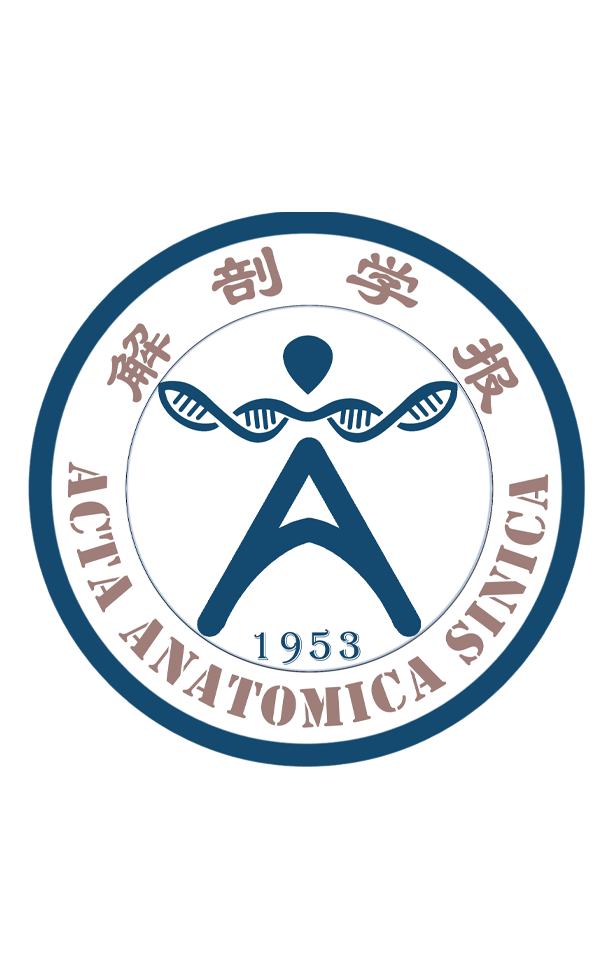欢迎访问《解剖学报》官方网站!今天是
English







孤雌胚胎干细胞来源的诱导多能干细胞的建立及对印记基因表达的影响
单智焱 武玢 张玥 薛媛 吴嫣爽 沈星辉 雷蕾 刘忠华*
解剖学报 ›› 2015, Vol. 46 ›› Issue (4) : 553-557.
孤雌胚胎干细胞来源的诱导多能干细胞的建立及对印记基因表达的影响
Generation of induced pluripotent stem cells derived from parthenogenetic embryonic stem cells and reprogramming of imprinted genes
目的 通过诱导多能干细胞(iPSCs)技术重编程孤雌胚胎干细胞,探讨iPSCs技术对孤雌胚胎干细胞的多能性及印记基因的影响。方法 从孤雌激活的囊胚中建立了孤雌胚胎干细胞;利用反转录病毒将多能性转录因子转入孤雌胚胎干细胞中,建立孤雌iPS细胞。 结果 建立的孤雌来源的iPS细胞体内外分化能力与孤雌胚胎干细胞的差别无显著性;Real-time PCR结果显示,孤雌iPS细胞母源印记基因的表达明显高于孤雌胚胎干细胞,父源印记基因表达下降,多能性基因表达升高。
结论 iPSCs技术能影响基因的表达,尤其是印记基因,印记使其更接近于正常受精来源的胚胎干细胞中印记基因水平。
Objective To investigate the effect of pluripotency and the expression of imprinted genes on the parthenogenetic embryonic stem cells (PgESCs) by induced pluripotent stem cells (iPSCs) reprogrmming. Methods In our study, we firstly generated the PgESCs from parthenogenetic blastocyst, induced the pluripotent factors into the PgESCs by retrovirus transfection and generated the iPS cells derived from PgESCs. Results It showed no difference in pluripotency and differentiation between PgESCs and PgESC-iPS cells, however, the expression of maternal imprinted genes was significantly increased and the expression of paternal imprinted genes was decreased in PgESC-iPS cells compared to that in PgESCs. Conclusion These results demonstrated the expression of imprinted genes could be modified by iPSCs reprogramming, which may be close to the expression level of imprinted genes in fertilized embronic stem cells.
孤雌胚胎干细胞 / 诱导多能干细胞 / 印记基因 / 实时定量聚合酶链反应 / 小鼠
arthenogenetic stem cell / Induced pluripotent stem cell / Imprinted gene / Real-time PCR / Mouse
[1]Espejel S, Eckardt S, Harbell J, et al. Parthenogenetic embryonic stem cells are an effective cell source fortherapeutic liver repopulation[J]. Stem Cells, 2014, 32(7):1983-1988.
[2]Liu Y, Ye X, Mao L, et al. Transplantation of parthenogenetic embryonic stem cells ameliorates cardiac dysfunction and remodelling after myocardial infarction[J]. Cardiovasc Res, 2013, 97(2):208-218.
[3]Ouyang Q, Lin G, Zhou XY, et al. Comparison of the differentiation capability between human parthenogenetic embryonic stem cells and normal embryonic stem cells[J]. Acta Anatomic Sinica, 2010, 3(6):785-789. (in Chinese)
欧阳琦,林戈,周晓樱,等. 人孤雌胚胎干细胞与正常胚胎干细胞分化能力的比较[J].解剖学报, 2010,3(6):785-789.
[4]Cordeiro A, Neto AP, Carvalho F, et al. Relevance of genomic imprinting in intrauterine human growth expression of CDKN1C, H19, IGF2, KCNQ1 and PHLDA2 imprinted genes[J]. J Assist Reprod Genet, 2014,31(10):1361-1368.
[5]Zhu JQ, Si YJ, Cheng LY, et al. Sodium fluoride disrupts DNA methylation of H19 and Peg3 imprinted genes during the early development of mouse embryo[J]. Arch Toxicol, 2014, 88(2):241-248.
[6]Smeester L, Yosim AE, Nye MD, et al. Imprinted genes and the environment: links to the toxic metals arsenic, cadmium, lead and mercury[J]. Genes (Basel), 2014, 5(2):477-496.
[7]Takahashi K, Yamanaka S. Induction of pluripotent stem cells from mouse embryonic and adult broblast cultures by dened factors[J].Cell, 2006, 126(4):663-676.
[8]Patel D, Ellis R, Howard B, et al. Analysis of IGF and IGFBP as prognostic serum biomarkers for adrenocortical carcinoma[J]. Ann Surg Oncol, 2014,21(11):3541-3547.
[9]Dowdy SC, Gostout BS, Shridhar V, et al. Biallelic methylation and silencing of paternally expressed gene 3 (PEG3) in gynecologic cancer cell lines[J]. Gynecol Oncol, 2005, 99(1):126-134.
[10]Goto M, Saito Y, Honda R, et al. Episodic tremors representing cortical myoclonus are characteristic in Angelman syndrome due to UBE3A mutations [J]. Brain Dev, 2015, 37(2):216-222.
[11]Anderlid BM, Lundin J, Malmgren H, et al. Small mosaic deletion encompassing the snoRNAs and SNURF-SNRPN results in an atypical Prader-Willi syndrome phenotype[J]. Am J Med Genet A, 2014, 164A(2):425-431.
[12]Rieusset A, Schaller F, Unmehopa U, et al. Stochastic loss of silencing of the imprinted Ndn/NDN allele, in a mouse model and humans with prader-willi syndrome, has functional consequences[J]. PLoS Genet, 2013, 9(9):e1003752.
[13]Shan ZY, Wu YS, Shen XH, et al. Aggregation of pre-implantation embryos improves establishment of parthenogenetic stem cells and expression of imprinted genes[J]. Dev Growth Differ, 2012, 54(4):481-488.
[14]Revazova ES, Turovets NA, Kochetkova OD, et al. Patient-specific stem cell lines derived from human parthenogenetic blastocysts[J]. Cloning Stem Cells, 2007, 9(3):432-449.
[15]Daughtry B, Mitalipov S. Concise review: parthenote stem cells for regenerative medicine: genetic, epigenetic, and developmental features[J]. Stem Cells Transl Med, 2014, 3(3):290-298.
[16]Durak O, Tsai LH. Human induced pluripotent stem cells: now open to discovery[J]. Cell Stem Cell, 2014, 15(1):4-6.
[17]Vassena R, Montserrat N, Carrasco Canal B, et al. Accumulation of instability in serial differentiation and reprogramming of parthenogenetic human cells[J]. Hum Mol Genet, 2012, 21(15):3366-3373.
RNA甲基化修饰对体细胞重编程的调控作用及机制研究
/
| 〈 |
|
〉 |